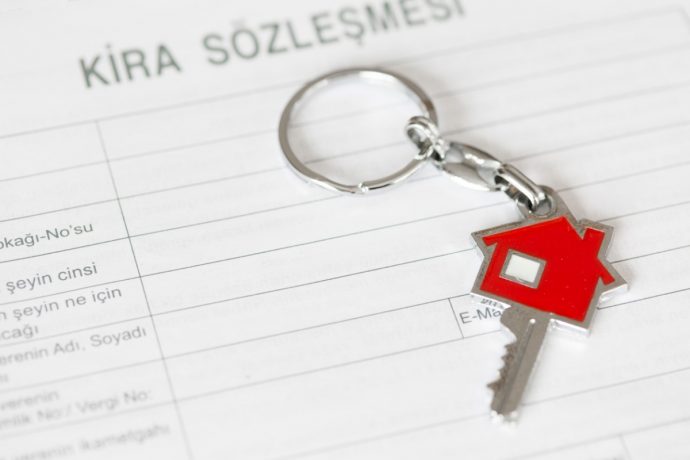Moving to Turkey and don’t know much about renting an apartment or a house here? Well, luckily you landed in the right place and we are here to help.
Home hunting can be exhausting and tedious, but with a clear goal in mind, relevant information and use of functional tools this process can be made much simpler and more rewarding. So let’s go step by step.

Identify your goal
The “goal” obviously means what and where you would like to rent.
First, of course, you must pick a city (or village), then see what kind of property types are available there such as an apartment, a detached house or a villa. You should also decide whether it will be a short-term or long-term rent.
So, is it an apartment in Istanbul for a year or a villa in Antalya for three months? Once you can answer this question you can move on to the hunt.

Picking the right medium
Now it’s time to find the actual rent listings and see what’s available.
You can go old school and head out to a real estate agency, which mostly work in the neighborhoods around their physical location.
But one of the perks of living in 2022 is that you can do this online via your computer or phone. There are several options for that.
You could use general shopping websites that have property listings or check out online ad spaces run by newspapers.
Another option would be to use platforms that exclusively specialize on real estate, like Zingat for example. It offers a wide array of search customization features, even including pet-friendly places. Furthermore, a very handy tool to help you make an informed decision is Zingat’s data-driven Area Report. This district-based report shows detailed demographic data on the area’s residents, including their age groups, marital status and education level based on latest degree. Perhaps the most important part of the Area Report is the “socio-economic conditions” of the area which are given a letter grade by Zingat’s experts. The letter grades for areas are granted based on livability, welfare level and cultural level. So, in a way you get to know the neighborhood quite well without ever stepping foot in it, allowing you to physically visit only the places and neighborhoods that actually suit your needs.

Initial costs
An important fact to know is that before moving into an apartment (house) you are most likely to make several payments that amount to the monthly rent at once.
Here’s what it means: imagine you found a place for 5,000 Turkish liras, as such you are likely to pay TL 5,000 for the first month, TL 5,000 as a refundable security deposit and TL 5,000 to the real estate agent (if you had one). Sometimes landlords demand two monthly rents as the security deposit. All in all, even before moving in you may be expected to pay an amount that equals three to four monthly rents.
More often than not tenants are also expected to sign up for house utilities (gas, electricity and water) by themselves under their name. Getting everything connected costs virtually nothing, but you will have to pay refundable security deposits to each utility provider separately. The deposits are given back to you once you terminate your contracts when you are moving out.
Another thing to keep in mind is that the vast majority of apartments for rent are unfurnished. So, you will either have to buy the furniture or find a furnished place that would obviously be a little costlier.

Sealing the deal
Once you find a place to your liking you can start closing the deal.
Don’t forget that you are in Turkey, so don’t be shy about haggling. It’s a natural and traditional part of every negotiation here – try to knock off a few hundred or maybe more from the initial price.
When you settle on the price, a contract is drawn up. If you are not a Turkish speaker, it’s best to have someone assist you.
Make sure the terms written into the contract are correct, including the monthly rate, the first day of renting and the length of the agreement. If the landlord is leaving something at the property (e.g. fridge, air conditioner, table, etc.), it’s usually also listed in the contract.
By the way, the monthly rate can only be raised once a year and not higher that the official annual consumer price index, i.e. the inflation rate, at the end of every contract year.
Both the tenant and landlord each get a mutually signed copy of the deal, which is valid without a notary approval. However, keep in mind that the contract would have to notarized when you apply for a residence permit in Turkey.
You should now be well equipped with relevant knowledge and tools to help you rent a perfect place for yourself in Turkey.











